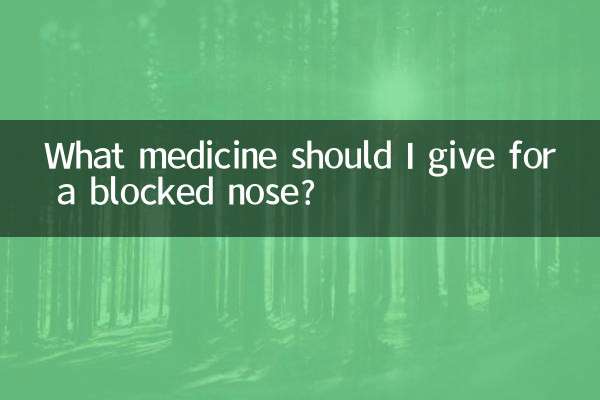What medicine to take after menopause: scientific choice and hot topic analysis
Menopause is an important stage in a woman's life, accompanied by changes in hormone levels, which may trigger a series of physical and psychological symptoms. How to scientifically use medication to relieve discomfort has become one of the hot topics in the past 10 days. This article will combine hot topics across the Internet to provide drug selection suggestions for postmenopausal women, and attach structured data for reference.
1. Common symptoms and medication needs after menopause

According to recent health discussions, symptoms of greatest concern to postmenopausal women include hot flashes, night sweats, mood swings, osteoporosis and urinary problems. The following is an analysis of the correlation between related symptoms and corresponding drug types:
| Symptom Category | Common symptoms | Recommended drug types |
|---|---|---|
| vasomotor symptoms | hot flashes, night sweats | Hormone replacement therapy (HRT), phytoestrogens |
| mood disorders | Anxiety, depression, irritability | SSRI antidepressants, proprietary Chinese medicines |
| bone health | Osteoporosis, joint pain | Calcium, vitamin D, bisphosphonates |
| genitourinary system | Vaginal dryness and frequent urination | Topical estrogens, moisturizers |
2. Hot discussions on hormone replacement therapy (HRT)
Recently, discussions about HRT have increased significantly in medical forums. According to expert opinion, HRT is still the most effective way to relieve moderate to severe menopausal symptoms, but the risk-benefit ratio needs to be evaluated individually. The following is a comparison of current mainstream HRT solutions:
| drug type | Representative medicine | Applicable people | Things to note |
|---|---|---|---|
| pure estrogen | Estradiol valerate | women with hysterectomy | Breast health needs to be monitored |
| Combined estrogen and progesterone | Estradiol + Dydrogesterone | women with uterus | Be aware of the risk of blood clots |
| tibolone | Leviathan | People with multiple symptoms | Requires regular evaluation |
3. Popular choices for non-hormonal therapies
Because some women are not suitable for or unwilling to undergo HRT, discussions about non-hormonal therapies have increased significantly on social media recently. The following are popular non-drug solutions compiled based on user sharing:
1.Phytoestrogens:Sales of soy isoflavones, red clover extract, etc. have increased significantly on e-commerce platforms, but attention must be paid to product quality and dosage.
2.Traditional Chinese medicine conditioning:Chinese patent medicines such as Zhibai Dihuang Pills and Kunbao Pills are highly discussed in the health community and are recommended to be used under the guidance of Chinese medicine practitioners.
3.Nutritional supplements:The combination of vitamin D3 and calcium has become a recent health care hotspot, especially for middle-aged and elderly women who are concerned about bone health.
4. Medication safety and latest research trends
According to recent research results published in medical journals, postmenopausal medication requires special attention to the following safety precautions:
| risk factors | Related drugs | management advice |
|---|---|---|
| cardiovascular disease | HRT | Starting before the age of 60, window period theory |
| breast cancer risk | synthetic progesterone | Prefer natural progesterone |
| thrombosis | oral estrogen | Transdermal drug delivery is safer |
5. Personalized medication recommendations
Based on recent hot consultation issues, the following medication references are provided for menopausal women in different situations:
1.Women with early menopause (before age 40):It is recommended to start HRT as early as possible, at least until the natural menopausal age, to protect cardiovascular and bone health.
2.Obese women:Prioritize transdermal estrogen to reduce the risk of thrombosis while paying attention to the management of metabolic syndrome.
3.Breast Cancer Survivors:Avoid systemic estrogens and consider non-hormonal therapies to relieve symptoms.
4.People at high risk for osteoporosis:On the basis of supplementing calcium and vitamin D, anti-bone resorption drugs are used when necessary.
Conclusion:
Postmenopausal medication use requires comprehensive consideration of symptom severity, personal health status, and risk factors. Various therapies that have been hotly discussed on the Internet recently have their own advantages and disadvantages. It is recommended to formulate an individualized plan under the guidance of a professional doctor. At the same time, a healthy lifestyle combined with scientific medication can achieve the best long-term health benefits.

check the details

check the details